#meta-crisis doctor
Explore tagged Tumblr posts
Text
Will it be weird to say that the Meta-crisis Doctor is basically the Tenth Doctor and Donna's offspring?
#doctor who#the doctor#donna noble#Meta-crisis Doctor#the metacrisis doctor#tenth doctor x donna#10th doctor#tenth doctor#myfunnylittlebrain#myfunnylittlebrain theories#david tennant#catherine tate#tentoo#the doctor x donna
39 notes
·
View notes
Text
meta-crisis goes by Corin this, meta-crisis goes by John Smith that, I choose to believe that they go by Ten (Tyler, of course) and whenever someone asks them why, he just answers that it's gender-nuetral and offers no further explanation
#i believe in he they meta-crisis#meta-crisis doctor#tentoo#meta crisis doctor#timepetals#pete's world#doctor who#nonbinary doctor who
17 notes
·
View notes
Text
'Should David Tennant die? That is a far more controversial question this week than it was last week. Last Saturday, Doctor Who viewers, who have few certainties to rely on at the best of times, sat down with the unshakeable confidence that, one way or another, they were going to watch Tennant’s take on the Doctor meet a tragic end, again.
Yes, if forced to guess, we would have bet that his ending would be a bit more uplifting than he saw at the end of his last run (“The Doctor doesn’t want to die and thinks that the next version of him is an imposter” is apparently a legacy Davies only likes to leave for other showrunners to pick up). But none of us could have foreseen the regeneration splitting the Doctor in two, like a bacterium, or Captain Kirk when the transporter is having an off day.
“Bigeneration” is a plot choice that has drawn mixed reactions – especially as Russell T Davies has gone on to say that this process has affected all the Doctors, leaving Tom Baker lying on the floor underneath Jodrell Bank while Sylvester McCoy is banging on the inside of his drawer at the morgue. One must imagine Patrick Troughton’s Doctor has pretty mixed feelings about surviving the Time Lord’s enforced regeneration only to discover himself floating in the vacuum of space surrounded by a bunch of dead Cyber Time Lords.
This also leaves us with the frightening prospect of not one, but potentially four David Tennant Doctors wandering around the Whoniverse (The Tenth Doctor, the meta-crisis Doctor, the post-meta-crisis regeneration Tenth Doctor, and the Fourteenth Doctor, for those keeping score at home).
But aside from all the fun to be had watching Doctor Who canon completely explode, again, bigeneration is a game changer, and it doesn’t necessarily change the game for the better. A key part of the Doctor Who mythos is that the Doctor dies. It is important thematically to the show – as Peter Capaldi himself has pointed out.
As Capaldi puts it, “People always ask me what is it about the show that appeals so broadly. The answer I would like to give that I’m discouraged from giving because it’s not useful to the promotion of a brand is that it’s about death, and it has a very, very powerful death motif in it which is that the central character dies.”
Happily Ever After?
There’s no denying the truth of Capaldi’s argument – and Russell T Davies himself made sure to have lots and lots of character deaths in his Doctor Who from the start. But Doctor Who is also a kid’s show (yes it is), and while we all know children’s stories can go to surprisingly dark places, you have to come out the other side eventually. Kids want a happy ending, and that is a difficult ask for a story that has been running continuously across various media for 60 years and looks set to keep going for at least 60 more.
This was a big part of the Fourteenth Doctor’s arc, as the Fifteenth Doctor points out by reeling off all the adventures, tragedies, bereavements, and struggles the Doctor has been through since Ian and Barbara wandered into his TARDIS back in the first episode. Anyone who actually lived through all that would be an emotional wreck.
But whatever happens, the Doctor always resets to zero, the figurative “Mad man (person) in a box”, which means giving them any kind of lasting closure is a tough job. Yet, that is what bigeneration gives the Fourteenth Doctor. Weirdly, his ending is most reminiscent of the end of a The Fast and the Furious movie – a found family of characters sitting around an outdoor table for a celebratory meal, the one character whose actor has passed away ostensibly just off-screen.
The Fourteenth Doctor gets everything the Doctor might want – a chance for quiet, for rest, a family, a home, and a spare TARDIS waiting in the wings if he wants to pop out for a Big Finish box set (or future TV special) when nobody’s looking. It is the happiest ending the Doctor could hope for, and not for the first time.
The Many Endings of the Doctor
In many ways, the Fourteenth Doctor’s ending is a shinier version of the Tenth’s the last time the Doctor and Donna travelled together. In the epic two-part franchise-sized crossover story, “The Stolen Earth”/”Journey’s End,” the Doctor is forced to regenerate, but instead of changing his face the regeneration energy is transferred into the Doctor’s own dismembered hand (it’s a long story) and Donna herself, creating the DoctorDonna (leading to her mindwipe ending) and a new, one-hearted Tenth Doctor clone that his previous companion, Rose, could take back to her universe to grow old with.
The original script even had Davies give the Doctor clone a bit of TARDIS coral to grow his own TARDIS later down the line. But even here, the Doctor clone is all angry and warlike, while the original Doctor is left looking sad and wet and alone in his TARDIS when the credits roll.
Other writers have also taken on the job of trying to give the Doctor a happy ending.
Paul Cornell, the writer of classic NuWho episodes “Father’s Day” and the “Human Nature/Family of Blood” two-parter, also wrote a piece of fan fiction all the way back in 2009, “The Last Doctor” that attempted to give him an ending. Appropriately, it is a Christmas story, which sees a final incarnation of the Doctor warming a community of refugees with the heat of a dying TARDIS at the end of the universe. Either through parallel evolution or, frankly, because Moffat probably read it, the Matt Smith regeneration story “The Time of the Doctor” bears more than a passing similarity to it.
In “The Last Doctor”, the Doctor doesn’t get a happy ending as such. This Doctor’s best ending is to keep fighting against the dying of the universe until the last possible moment (as River Song says, nobody knows that everything must die better than the Doctor, but he’ll never accept it), and then to be present when the new universe is born. When your character’s defining trait is a need to fight injustice at any place or time in the universe, going down fighting might be the best happy ending they can hope for.
Steven Moffat has had a go as well. With his own anniversary special, he gifted the Doctor three happy endings. First, he gave the Doctor his home planet back. Secondly, he hid it in a pocket dimension so that the Doctor still had adventures to come and also didn’t need to deal with all those pain-in-the-arse Time Lords. But finally, he introduced the Curator, who closely resembled Tom Baker and suggested the Doctor might revisit some old faces in his future (You don’t say?!). This character was all but said to be a future incarnation of the Doctor, a Doctor who had retired from saving the universe to look after an art gallery. Fans are already suggesting this is the Fourteenth Doctor’s post-bigeneration fate.
But this is not even the first future Doctor that Steven Moffat has introduced! In the story that gave us the Doctor’s non-linear love interest River Song, “Silence in the Library/The Forest of the Dead”, the child whose brain runs the Library supercomputer is cared for by an AI called “Doctor Moon”, played by Colin Salmon.
Moffat envisioned the “last scene of Doctor Who” while creating that two-parter, deciding that the River we meet in those episodes is not only his wife but his widow. Moffat explained in Doctor Who Magazine (via Radio Times) that “Somewhere in the terrible future, on a battlefield, the 45th Doctor dies in her arms and makes her the same promise she once made him – it’s not over for you, you’ll see me again. So River buries her husband and off she goes to have lots of adventures with his younger selves and confuse the hell out of them.
“Until, of course, she ends up in the data core of the Library Planet, and realises she’ll never see him again. And then she starts to wonder why anyone would call a moon ‘Doctor.’ Ahhh…”
Later Moffat would write that even before the 45th Doctor and River Song ended up happily ever after in the Library computer, River Song and the Doctor had another happy ending. At the end of the Christmas special, “The Husbands of River Song”, Peter Capaldi’s Twelfth Doctor and River Song are given one last night together, before River must go and meet her “death” in “Silence in the Library” and complete their timey wimey bootstrap paradox.
But at the end of the episode, the Doctor reveals that on this planet one night lasts 24 years. For all the Fifteenth Doctor says about the Doctor never stopping, he stopped here for a while – as he did on the planet of Christmas in “The Time of the Doctor”, growing old and protecting children.
That is what all these endings have in common. The Doctor stops travelling. He stops, he settles down. The Ninth Doctor proudly proclaims, “I don’t do domestic”, but all of these “endings” imply a bit of domesticity is just what the Doctor is missing.
The End…Until It’s Not
While the Fifteenth Doctor can happily fly off into space because the Fourteenth Doctor “did the rehab”, and is next seen dancing in a nightclub in the upcoming “The Church on Ruby Road” Christmas special, we’ve got to ask, how long before this Doctor’s trauma meter is so filled up that they need to go and find another domestic happy ending somewhere?
Because the idea that the Doctor needs to “settle down” is, frankly, at odds with the entire nature of the character. The Russell T Davies version in particular is an escape from a certain preconceived notion of domesticity – frankly, straight domesticity. Rose, Donna, and Torchwood’s Gwen, they all start out trapped in dull lives with useless boyfriends, yearning for something more (Steven Moffat’s take on Who is, obviously, a good deal more sympathetic to useless boyfriends).
The Doctor is about freedom and adventure, and doing what’s right even when it’s dangerous or painful or socially awkward, and the happiest endings, the ones that leave you punching the air when the credits roll, are the ones where the TARDIS is already flying off to its next adventure as Ncuti Gatwa does at the end of “The Giggle”.
If one day Doctor Who does actually need an ending, an actual, proper, canon ending that brooks no return, the fact is they will have a hard time topping Sylvester McCoy’s speech at the end of “Survival”, the last story broadcast before the classic series of Who was unceremoniously cancelled:
“There are worlds out there where the sky is burning, and the sea’s asleep, and the rivers dream; people made of smoke and cities made of song. Somewhere there’s danger, somewhere there’s injustice, and somewhere else the tea’s getting cold. Come on, Ace. We’ve got work to do!”'
#David Tennant#Ncuti Gatwa#Bi-generation#Doctor Who#60th Anniversary#Peter Capaldi#Sylvester McCoy#Ace#TARDIS#The Giggle#Tom Baker#Patrick Troughton#Meta-Crisis Doctor#The Stolen Earth#Journey's End#Catherine Tate#Donna Noble#River Song#Paul Cornell#Father's Day#Human Nature#The Family of Blood#Matt Smith#The Time of the Doctor#The Last Doctor#Silence in the Library#Forest of the Dead
4 notes
·
View notes
Text
What Would Billie Piper Change About Her Time on Doctor Who?
What Would Billie Piper Change About Her Time on #DoctorWho?
Billie Piper has been reflecting on her time playing Rose Tyler on Doctor Who — so what would she change about what happened with Rose? She wasn’t too happy with the bittersweet ending the character received in Journey’s End… When asked if she’s alter anything, she replied: “Oh my God, for sure, the Doctor Who ending where I go off with the second Doctor instead of the real Doctor to the…
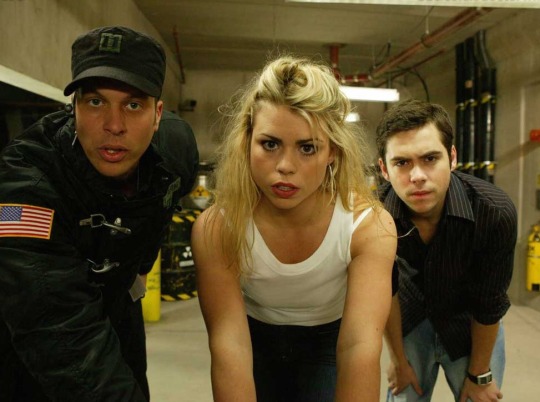
View On WordPress
#Billie Piper#Catherine Tate#David Tennant#Doctor Who Series 4#Donna Noble#Journey&039;s End#Meta-Crisis Doctor#Rose Tyler#RTD#Russell T. Davies#Tenth Doctor
4 notes
·
View notes
Text
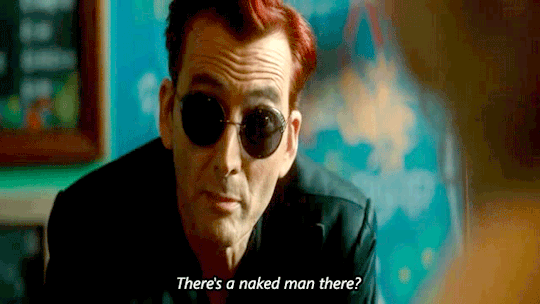

Good Omens / Doctor Who
#Good Omens#goodomensedit#goedit#Doctor Who#doctorwhoedit#dwedit#Crowley#Tenth Doctor#10th Doctor#David Tennant#My Gif#Meta Crisis Doctor#Tentoo#lgbt#lgbtedit#tvandfilm#dailytvfilmgifs
2K notes
·
View notes
Text
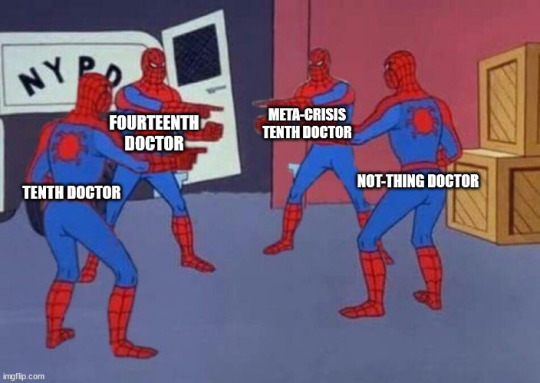
Has anyone made this yet?
I think David Tennant hasn't played enough characters in DW.
#doctor who#the doctor#tenth doctor#fourteenth doctor#meta crisis tenth doctor#nothing doctor#david tennant#doctor who spoilers
134 notes
·
View notes
Text
Sutekh brought death and destruction to all planets the doctor ever visited?
You can’t just leave it at that. What about Pete’s world? Is it ok, is it safe, did rose and meta-ten die too or are they protected cuz it’s a parallel universe?
*shakes RTD violently*
#doctor who#dr who#dw#dw spoilers#doctor who spoilers#empire of death#sutekh#pete’s world#rose tyler#meta crisis doctor
39 notes
·
View notes
Text

Ed, Edd, and Eddy be looking wild these days
#doctor who#tenth doctor#meta-crisis#donna noble#catherine tate#david tennant#doctor donna#doctor who au
36 notes
·
View notes
Text
If I had a nickel everytime david tennant made another version of himself by using revolutionary regeneration methods and then gave up his time travelling lifestyle to live with one of his companions and their family (most of which have been in the tadtsi before) while the other doctor carries on his journey alone and donna noble is there also
I’d have 2 nickels, which is worthless because im not American
#jade278#doctor who#dr who#doctor#who#10th doctor#tenth doctor#meta crisis doctor#14th doctor#fourteenth doctor#the giggle#journeys end#doctor who 60th anniversary
39 notes
·
View notes
Text
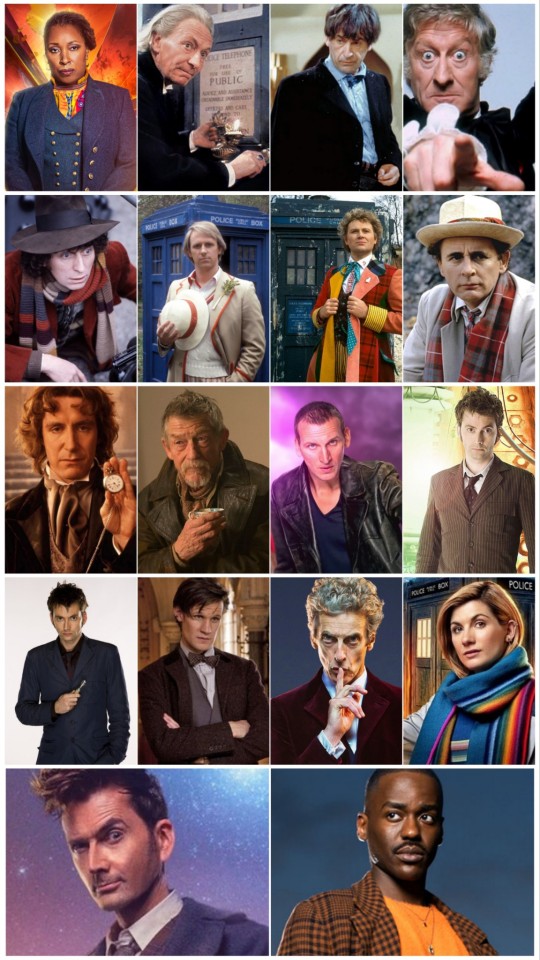
Happy 60th to Doctor Who.
I had to make my own big banner because most ones online either don't include the Fugitive Doctor or 10.5. I think those two, plus War, perfectly show how unpredictable and silly this show is.
#doctor who#14th doctor#10th doctor#the doctor#1st doctor#2nd doctor#3rd doctor#fugitive doctor#war doctor#meta crisis doctor#4th doctor#5th doctor#6th doctor#7th doctor#8th doctor#9th doctor#11th doctor#12th doctor#13th doctor#15th doctor
44 notes
·
View notes
Text





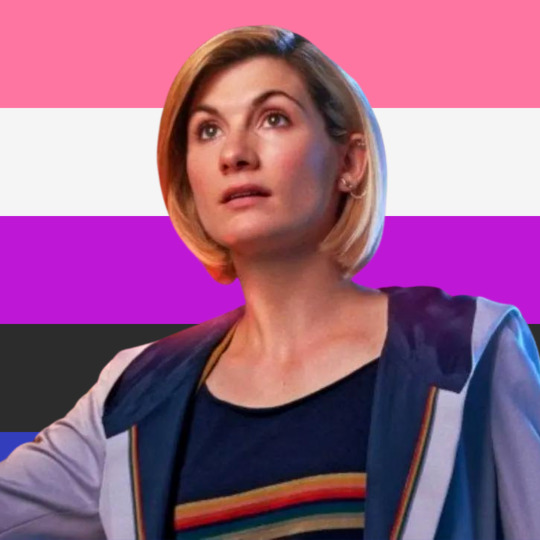



Miscellaneous Doctor Who Headcanon Pride Icon Requests for @melodyandpond, @eightdoctor and @gumshoesniper 🏳️🌈 🏳️⚧️
Free to use with credit 💜
#doctor who#dw edit#Pride#trans#genderfluid#polyamorous#lgbt#the Doctor#thirteenth doctor#13th doctor#meta crisis doctor#River song#professor River Song#fitz kreiner#fitz fortune#saibra#Torchwood#Jack Harkness#captain jack harkness#ianto jones#Owen harper#andy davidson#my icons
81 notes
·
View notes
Text
some people are arguing about rose being a genocider because of 'the parting of ways' and i was about to jump in to defend her because duh, we all want the daleks gone right? bad wolf sure isn't framed as genocide.
however.
in 'journey's end' when the meta crisis doctor does the exact same thing...the doctor is appalled and exiles him for it.
my friend jokingly said that the doctor didn't try hard to get rose back in 'doomsday' but now i'm thinking...maybe a part of him was kinda relieved.
i can accept the meta/rose arc if i look at it through this lense. of the doctor saving rose because at the end of the day, he still loves her but always having in the back of his mind this massive alarm bell ringing because this girl just did a genocide for him. he pushes it away and says eff it imma have fun and they run around but their actions catch up then we get doomsday and as devastated as the doctor was, a part of him was saying welp. this was going to happen. and it's probably best this way. doesn't mean he has to be happy about it though (see series 3).
because then we get to series 4 and we get the meta crisis doctor pulling another genocide and the doctor's forcibly reminded of what happened before. so when rose asks why can't she stay, the doctor is more than eager to kill two birds with one stone, and orders the two genociders far tf away.
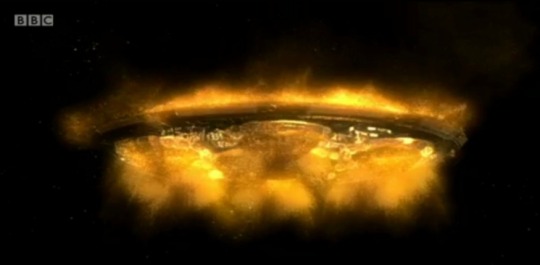
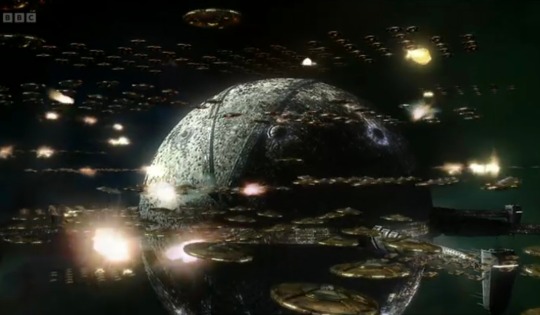
#i just prefer dark rose if im being honest#and i suppose dark meta crisis doctor#doctor who#meta#analysis#tenth doctor#10th doctor
50 notes
·
View notes
Text
'...Tenth Doctor: David Tennant (December 2005 – January 2010)
The Tenth version of The Doctor was played by David Tennant for three series between 2005 – 2010.
In sharp contrast to Nine, this Doctor appeared far less burdened by the events of the Time War and was a charming, friendly, and charismatic individual. Despite his easygoing attitude, however, he never shied away from expressing disapproval or anger and was furiously protective of his companions.
The Tenth Doctor did develop a darker nature, which was exasperated by the loss of his companions and a desperate desire to avoid his inevitable death. He reaches his lowest point during the 2009 episode ‘The Waters of Mars‘ where he declares himself ‘the Time Lord victorious’ after attempting to bend the strict rules of time to his will.
Rose Tyler, Martha Jones (Freema Agyeman), and Donna Noble (Catherine Tate) acted as the Tenth Doctor’s primary companions. The 2006 episode ‘School Reunion‘ also marked the return of Elisabeth Sladen as Sarah Jane Smith..
Meta-Crisis Doctor: David Tennant (July 2008)
During the events of ‘The Stolen Earth‘ and ‘Journey’s End‘ the Tenth Doctor enters a regenerative state after being shot by a Dalek – having just reunited with Rose and not wanting to change however, he diverted the regeneration energy into his severed hand (which was found and returned to him in a jar by Captain Jack).
When the Daleks later attempt to destroy the TARDIS, Donna, who is still inside the ship, touches the jar which causes a biological meta-crisis, creating another version of The Doctor.
Unlike his counterpart, the Meta-Crisis Doctor shares half of Donna’s DNA making him a human Time Lord hybrid with one heart and a human life span. He’s also shown to share some of Donna’s mannerisms.
When The Tenth Doctor eventually returns Rose and her family to their parallel world, he entrusts her to look after the Meta-Crisis Doctor – explaining that being born in battle makes him too dangerous to be left alone, representing who he was before he and Rose met.
Fourteenth Doctor: David Tennant (October 2022 – December 2023)
David Tennant returned to Doctor Who as the Fourteenth Doctor for the show’s 60th-anniversary specials, where he was joined by Catherine Tate who reprised her role as Donna Noble.
In the final moments of 2022’s ‘The Power of the Doctor,’ Jodie Whittaker regenerated into a familiar face and Russell T. Davies quickly confirmed that David Tennant would be playing the Fourteenth Doctor for the anniversary celebrations.
Aside from sharing a face with the Tenth Doctor, the Fourteenth incarnation of the Time Lord comes across as much more vulnerable than his predecessor and has clearly been heavily affected by the recent events of both The Flux and the Timeless Child revelations.
The Fourteenth Doctor was joined by Donna Noble during his on-screen adventures, and he was also reunited with Melanie Bush (Bonnie Langford) in the events of ‘The Giggle‘...'
#David Tennant#Tenth Doctor#Meta-Crisis Doctor#Fourteenth Doctor#Doctor Who#Catherine Tate#Donna Noble#The Giggle#Melanie Bush#Bonnie Langford#The Flux#Timeless Child#The Power of the Doctor#Jodie Whittaker#60th Anniversary#Russell T. Davies#Rose Tyler#Billie Piper#Martha Jones#Freema Agyeman#The Waters of Mars#School Reunion#Elisabeth Sladen#Sarah Jane Smith#The Stolen Earth#Journey's End#Captain Jack Harkness#John Barrowman#TARDIS
2 notes
·
View notes
Text
I hope that during the 60th special for Doctor who, we just get a comedic cut away of Rose and Metacrisis Ten just chillin in their world
#like it just cuts to them watching tv#something happens to donna and Meta crisis ten is just like:#Something has happened#david tennant#doctor who#10th doctor#rose Tyler#tenrose#metacrisis doctor#doctor who 60th anniversary#dw 60th#bbc
29 notes
·
View notes
Photo
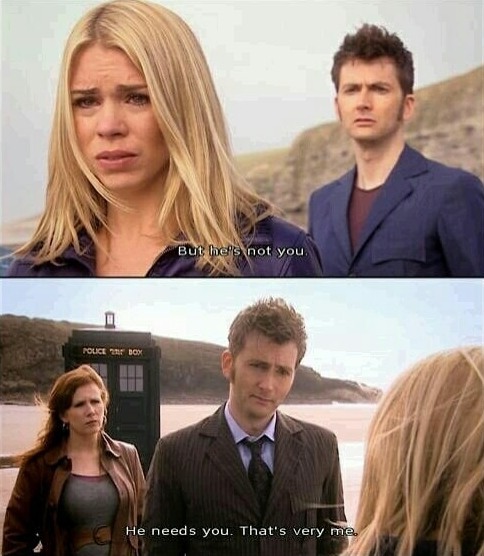
Doctor Who Series 4 Episode 13: "Journey's End", 2008
found on: pinterest
#10th doctor#the meta crisis doctor#David Tennant#rose tyler#billie piper#Donna Noble#Cathrine Tate#journey's end#doctor who
42 notes
·
View notes
Text
Has any companion been witness to more than one regeneration?
12 notes
·
View notes